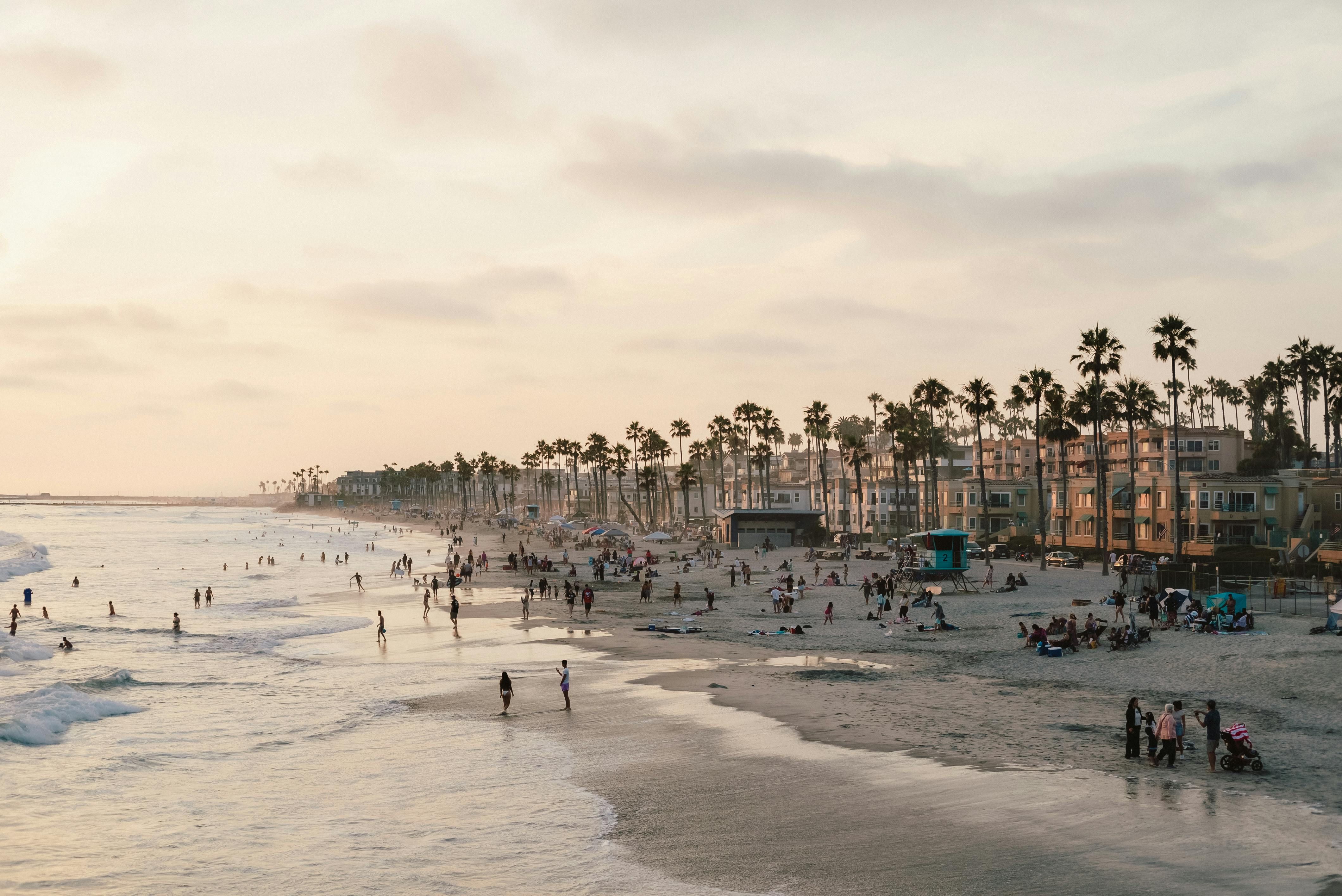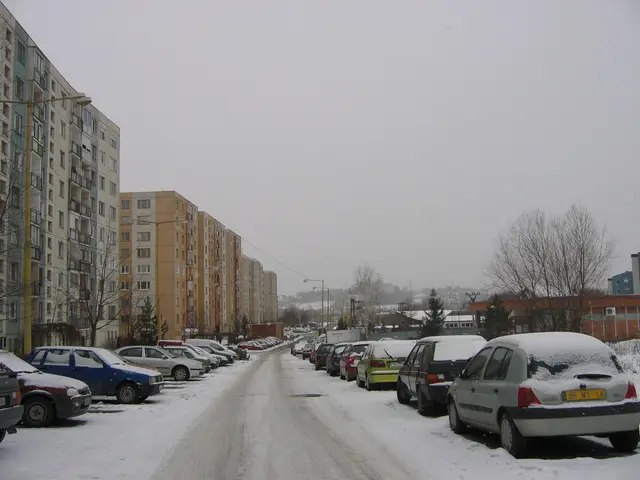Chilling on "Islands": A Chat with Jan-Ole Gerster and Sam Riley
"Fuerteventura project was a fortunate addition to the work"
Reading Time: 3 minutes
After "Oh Boy" (2012) and "Lara" (2019), Jan-Ole Gerster steps into the director's chair once more with an intriguing new feature, "Islands." This psychological drama takes us to the sun-drenched landscapes of Fuerteventura, where Sam Riley plays Tom, a disillusioned tennis coach leading a glitzy life on the Canary Island. His tranquil existence is turned upside down when an enigmatic guest family stirs up dark currents, drawing him into a labyrinthine mystery.
Gerster and Riley recently sat down with ntv.de to discuss their collaboration, the allure of Fuerteventura, and the enchanting score by Dascha Dauenhauer.
ntv.de: Sam, have you ever traversed the Canary Islands before "Islands"?
Sam Riley: My grannies fancied retiring on Tenerife, but I only visited them at twelve. I adored that shoot; it was a cracking location for work. I'm quite fond of the sun, but I didn't grow up basking in it. Most of my holidays were in Yorkshire, on the coast. So, I appreciate places where you can view the sea. Following eight weeks of sun, though, I could imagine feeling like Tom, chained to a hotel job. In the film's early stages, we filmed in a functioning hotel, which was quite mad. Eventually, I longed for a woolly coat and a frosty winter walk by the Schlachtensee with a scarf wrapped tight.
Jan-Ole: Fuerteventura piqued my interest initially for its filmic charm, but it also exuded an outdated tourist vibe. I often get smitten by places - they can be magical if you explore the right spots. A tennis coach I observed from my balcony for two weeks, toiling in the scorching sun for ten hours daily, captivated me – maybe it was his sound installation of repetitive comments that intrigued me. I connected with him, sensing him stuck in a life he couldn't escape – a persistent theme in the film.
ntv.de: Did you actually speak with him, or merely observe?
Jan-Ole: I had a fleeting chat with him. I found it intriguing that Tom, the character, was unaware that paradise was a trap. Escapism and the quest for a better life are recurring motifs presented through the lens of holiday settings. Falling for someone who promises a different life or escaping reality are common human tendencies, regardless of wealth or companionship.
Sam: Tom and Dave share similar frustrations; though they lead different lives, both yearn for something more. I was instantly seduced by the role, having guzzled the script down in one gulp - ironically enough, right there on the beach, but not under the sun. I'd have relished any role afforded to an actor of my age – it's a breathtaking character, brimming with complexities and contradictions.
ntv.de: You're domestically content, with a beautiful partner and a child, right Sam? Or am I mistaken?
Sam: In terms of family setup, yes, much like Dave – with a twist. I reckon Tom and Dave are two sides of the same coin; they've experienced different circumstances but share the same discontent. We all ponder whether we have it right – whether it's material possessions, romance, or achievements. It's hippie wisdom, I suppose, but it rings true. At present, I'm fairly content, but I've previously experienced the self-questioning phase.
ntv.de: Have you ever felt that the grass is greener on the other side?
Sam: Most adults have wrestled with that thought at some point – whether they possess abundance or scarcity. It's a mindset. I've learned to focus on a single day at a time, simplifying my perspective.
ntv.de: As an actor, you must watch movies and envy roles?
Sam: Oh, all the time! I frequently watch reality TV because I can't abide being overshadowed by my colleagues scoring career victories. (laughs)
Collaborating Closer:
Jan-Ole: I became enamored with Sam after his fantastic debut performance in "Control." We bonded over shared representation and similar tastes. Eventually, we decided to collaborate.
ntv.de: But Jan didn't simply toss the role to you, don't you think?
Sam: No, I didn't bag it instantly. I had to woo him over several meetings. We initially discussed movies, then I told him I craved the role. Surprisingly, our tennis rendezvous sealed the deal.
ntv.de: Who dominated on the tennis court?
Sam: Jan thrashed me, no question. He's an accomplished tennis player, so it wasn't surprising. I hadn't touched a racket before the film.
ntv.de: Your tennis skills have improved since the shooting, no?
Sam: I've definitely honed my skills since then. Prior to the shoot, I received four hours of training per week, though the hefty price tag meant I had to skimp on personal financing. I did manage to coach children for the film, and my kid would sometimes accompany me. That helped me mimic the teaching style. My son is still playing tennis to this day.
Music Makes a Mockery:
Jan-Ole: The film exhibits a noir-like atmosphere, despite not being a traditional crime story. Tom's complexity stems from Sam's flawless acting. The script initially faced skepticism regarding the character's development, as potential financiers perceived him as a typical tennis coach stereotype. I aimed for a character who rediscovers his emotional life, gains insight into himself, and experiences something novel – beyond the vicarious thrills of a standard rom-com or underdeveloped male character.
ntv.de: The script is predominantly in English, punctuated by occasional German and Spanish dialogue.
Jan-Ole: My primary inspiration for penning the script in English was to broaden my artistic palette and create something for a wider audience. It's imperative for films to break beyond national boundaries in this digital age, where the German box office doesn't hold the same clout as it once did. I've long preferred English dialogue in films – it imbues a relaxed, conversational feel that suits the script. The majority of German-language films reside as niche fare, whereas big-budget Hollywood productions cater to broader audiences. I sought neutral ground for our global team – Brits, Germans, and Spaniards.
Scripting Shindigs:
Jan-Ole: Blaz and I kick-started the script together, eventually seeking the expertise of Lawrie Doran to refine the dialogue and ensure structural coherence. Despite our collaboration, we never sat down in a single room to discuss the script. Instead, we spent time apart, discussing our ideas later.
Jan-Ole: I found that spending time with actors beforehand enabled the resolution of any ambiguities that wouldn't surface on set. The precision of language in film staging is paramount – every nuance contributes to a scene's depth. I wasn't always one hundred percent satisfied with my communications; a five-sentence explanation sometimes demanded ten, adding up to extra shooting time. But overall, the process went remarkably smoothly, and Sam proved adept at adapting to my direction.
Sam: I can speak fluent German, which was handy when the crew slipped up. But we mostly stuck to English to maintain a more organic dynamic among the actors.
ntv.de: The music is a crucial component of the film, evoking an ambiguous atmosphere. How did you conceptualize the score?
Jan-Ole: I'd always listened to music when writing, and it profoundly influenced the film's visual aesthetic. We experimented with various musical styles throughout the filming process, from noir-inspired 70s flair to Pedro Almodóvar's atmospheric soundscapes. Eventually, Dascha Dauenhauer came into the picture.
ntv.de: Do you experience apprehension when collaborating with composers on their contributions?
Jan-Ole: I once feared the composer would ruin the emotional integral of the piece. However, working with Dascha eased those worries. Her musical instincts resonated with mine, and our collaboration yielded stunning results. We spent a considerable amount of time together, conversing about the film's themes and mood, developing the score hand-in-hand. I can't express myself musically, but I can articulate feelings, and Dascha translated them flawlessly.
ntv.de: Sam, have you continued to compose music in your life?
Sam: Yes, I still tinker with my guitar daily at home. I've toyed with the idea of releasing something, but it always seems like my personal indulgence. Instead, I take immense pleasure in creating music for myself.
Jan-Ole Gerster and Sam Riley chatted with Nicole Ankelmann
"Islands" is now screening in German cinemas.
Sources: ntv.de
Film – Cinema – Drama – Canary Islands – Music
- The European Union and the United States might consider the cinematic appeal of "Islands," a psychological drama set on the sun-drenched Canary Islands of Fuerteventura, for broader audience reach in this digital age.
- Sam Riley, the lead actor in "Islands," reminisced about his 12-year-old visit to Tenerife, which instilled a fondness for islands and the sea.
- Gerster and Riley discussed how the general news and entertainment landscape often explores the enigmatic allure of islands, presenting common human themes such as escapism and the quest for a better life.
- The script for "Islands" was initially written in English by Jan-Ole Gerster, to broaden his artistic palette and address themes that resonate globally, including politics and screenplay development.
- During the collaboration process for "Islands," Jan-Ole Gerster and Sam Riley found solace in their shared representation and tastes for music, which significantly contributed to the film's noir-inspired atmosphere.







